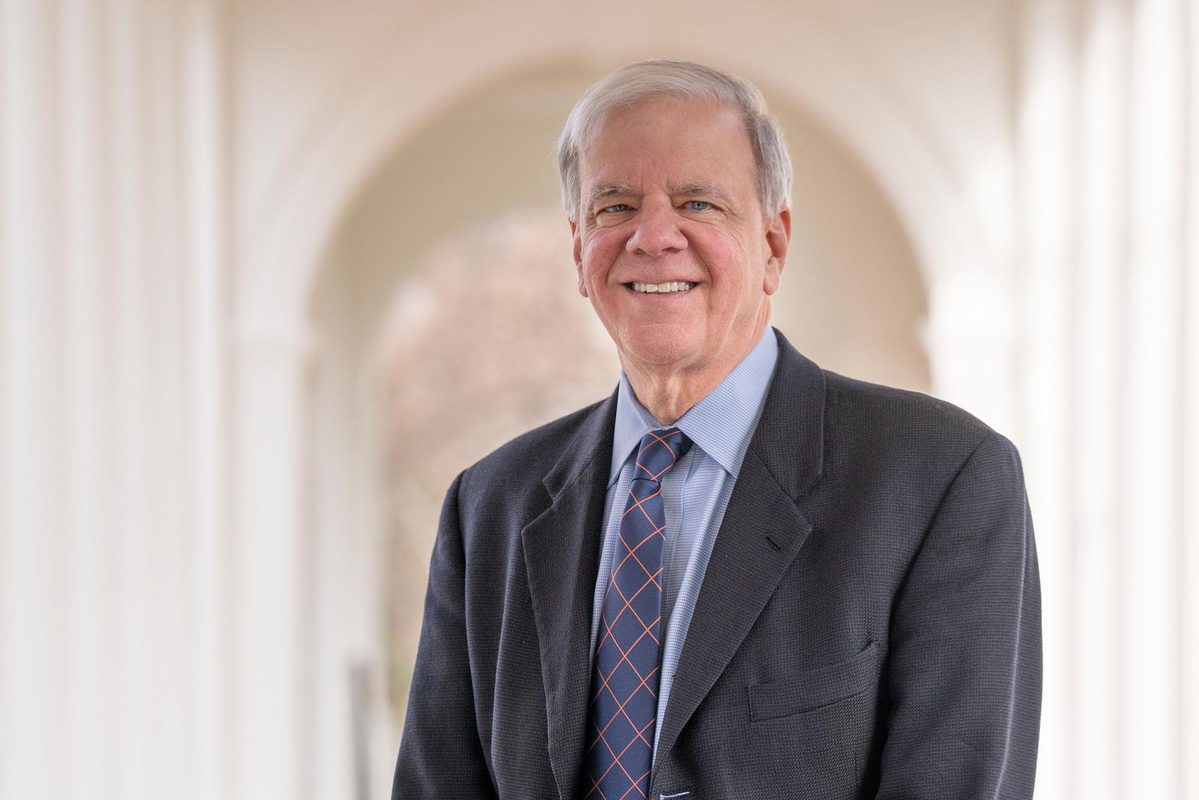University of Virginia President Jim Ryan today announced the appointment of Dr. K. Craig Kent as executive vice president for health affairs, effective Feb. 1, 2020.
The senior leadership position oversees UVA Health and its clinical enterprise, which spans the Commonwealth of Virginia.
Kent currently serves as dean of The Ohio State University College of Medicine, vice president for health sciences and the Leslie H. and Abigail S. Wexner Dean’s Chair in Medicine.
A researcher, educator and physician, Kent is an internationally recognized leader in academic medicine. In October, he was elected to the 2019 class of inductees into the National Academy of Medicine, one of the highest honors in the fields of health and medicine. He chairs the American Board of Surgery.
“We put a lot of time and effort into this search because we knew how important it was to get the right person for the job,” Ryan said. “Dr. Craig Kent is that person. He’s a renowned surgeon, an experienced teacher and researcher, and a proven leader with a remarkable life story. I believe Dr. Kent will do an excellent job leading the UVA Health, and I very much look forward to working with him.”
“Dr. Kent is a remarkably gifted leader – visionary, energetic, with a record of extraordinary accomplishment,” said UVA Provost Elizabeth “Liz” Magill, who chaired the search committee for the position. “I know he will lead UVA Health to even greater heights, and I look forward to working closely with him on advancing the academic mission of this great University.”
In his nearly four years as dean, Kent has helped Ohio State make significant investments in research through growth of infrastructure and recruitment.
“Congratulations to our good friend and colleague Craig Kent on his appointment as executive vice president for health affairs at the University of Virginia,” Ohio State President Dr. Michael V. Drake said. “He has made lasting contributions here at The Ohio State University, and we are certain he will do the same for UVA. I am sorry to see him go, but wish him all the best in this next chapter of his impressive professional life.”
“Dr. Kent is a fabulous choice to lead UVA Health,” added Dr. Reid Adams, chair of UVA Health’s Department of Surgery and a member of the search committee. “He brings deep leadership experience, integrity, superb communication skills and innovative ideas that will move the University of Virginia to an even higher level of performance as a top academic health system.”
Kent previously served as chair of the Department of Surgery at the University of Wisconsin School of Medicine & Public Health, was chief of the Division of Vascular Surgery at Weill Medical College of Cornell University and Columbia College of Physician Surgeons, and started his career teaching at Harvard. All told, he has had 30 years of experience at a number of prestigious academic medical centers and more than 20 years of leadership experience in academic medicine.
A funded researcher for more than 25 years, Kent has spent much of his career investigating molecular mechanisms underlying vascular disease with the goal of developing new treatments relying on innovative methods of drug delivery.
Kent’s career path was not what his father had in mind. Having been raised on a working ranch in Fallon, Nevada, the expectation was that Kent would one day take over the family business. With subtle encouragement from his mother, he applied and was accepted to a number of schools, including Stanford University. His father balked at the idea, but compromised, agreeing that he could attend the University of Nevada-Reno so long as he majored in agriculture and made the 60-mile drive home every weekend to work on the ranch.
Kent seized the opportunity, soon changing his major to biology and chemistry, and gradually won his father’s acceptance. He went on to earn his medical degree from the University of California, San Francisco, where he also completed his surgical residency. He then completed a research and clinical fellowship in vascular surgery at Brigham and Women’s Hospital.
Kent and his wife Lisa have four children: Amanda is in law school, Alicia is a senior at Boston College, Olivia is a junior at Syracuse University and Eric is a high school sophomore.
“I’m incredibly excited and honored to have the opportunity to join one of the nation’s best universities and health systems,” Kent said. “I’m looking forward to working with the tremendous leadership team at the University and UVA Health to continue to grow and enhance patient care, medical education and innovation that benefits the state of Virginia and beyond.”
At UVA Health, Kent succeeds Dr. Richard P. “Rick” Shannon, who announced in March that he was stepping down after having served in the position since 2013, and Pamela Sutton-Wallace, who served as acting executive vice president following Shannon’s departure.
The executive vice president for health affairs reports to Ryan and is a member of his executive cabinet. The position develops the overall strategy of the UVA Medical Center, the School of Medicine, the School of Nursing, University Physicians Group and the Claude Moore Health Sciences Library. In addition, Kent will work closely with regional clinical and educational partners.
UVA Health includes a 612-bed hospital, UVA Children’s, an NCI-designated clinical cancer center, a nationally recognized heart center and primary and specialty clinics throughout Central Virginia and beyond. In addition to the UVA Medical Center being named the best hospital in Virginia for four consecutive years by U.S. News & World Report, UVA is also recognized for excellence by “Best Doctors in America” and “America’s Top Doctors.”
On an annual basis, the Medical Center has approximately 30,000 admissions, more than 1 million outpatient visits and more than 62,000 emergency room visits. Research expenditures were in excess of $190 million, and more than 1,900 students and residents are being trained as future health care providers.
Media Contact
Article Information
December 5, 2019
/content/dr-craig-kent-appointed-uva-executive-vice-president-health-affairs

